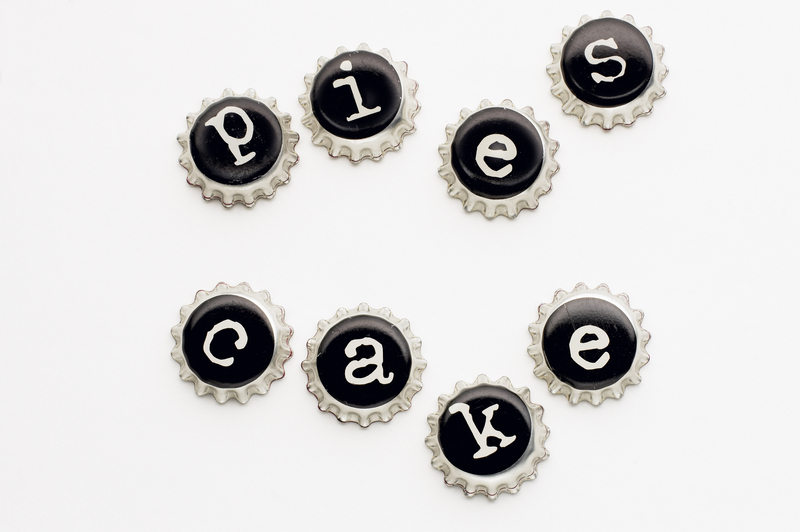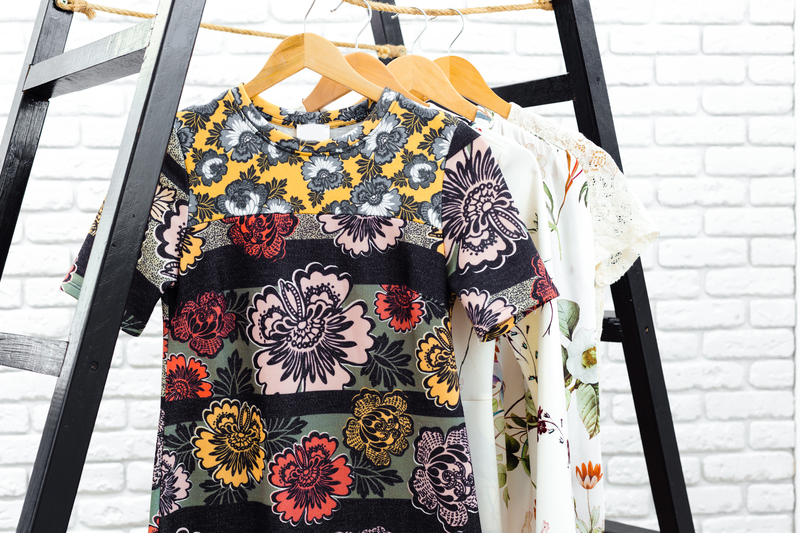Decluttering Your Life: Embrace Minimalist Living
Minimalist living is not just a trendy buzzword--it's a transformative lifestyle that invites simplicity and intentionality into every corner of your existence. In today's world, it's easy to get caught up in material possessions and clutter that weigh us down both physically and mentally. By focusing on decluttering your life and embracing minimalism, you can boost your productivity, foster mental clarity, and create an environment that encourages satisfaction and happiness.
What Is Minimalist Living?
Minimalist living is about more than just getting rid of stuff. It's about intentionality--choosing to keep only the things that add value and joy to your life, and consciously letting go of excess. The goal is not deprivation, but liberation: freeing yourself from the burden of unnecessary possessions and focusing on what truly matters.
Key Principles of Minimalist Living
- Intentionality: Living on purpose, rather than by default.
- Clarity: Reducing distractions to focus on important goals and values.
- Freedom: Liberating yourself from clutter, chaos, and consumerism.
- Sustainability: Reducing waste and embracing eco-friendly habits.

Why Declutter? The Benefits of Minimalism
Choosing to declutter your life yields a sweeping array of physical, emotional, and psychological benefits. Here are some compelling reasons to consider minimalist living:
1. Enhanced Mental Wellbeing
Physical clutter often translates to mental clutter. By clearing your space, you create a sense of calm and order that can reduce stress, anxiety, and even symptoms of depression. Minimalist homes are shown to encourage relaxation and tranquility, supporting better mental health.
2. Increased Productivity and Focus
A clutter-free environment allows you to concentrate on your tasks without unnecessary distractions. Whether working from home or pursuing personal hobbies, you'll notice a substantial boost in focus and productivity as you minimize your belongings.
3. Financial Freedom
Embracing simple living curbs the urge to make impulsive purchases. Over time, you'll notice more money in your account--less spent on unneeded items and more available for experiences that enrich your life.
4. Improved Relationships
When you let go of unnecessary belongings, you also make space for meaningful interactions. Decluttering your life can foster deeper relationships by encouraging mindful communication and quality time with loved ones, rather than distraction by clutter.
5. Environmental Benefits
Minimalist living naturally leads to less waste and a smaller environmental footprint. By holding onto only what you need and valuing quality over quantity, you contribute to environmental sustainability.
How to Start Decluttering Your Life
Embarking on your minimalist journey doesn't have to be overwhelming. Decluttering your life can be broken down into actionable, manageable steps. Here's a comprehensive guide to help you get started:
1. Set Your Intention
Before you begin, get clear about your reasons for wanting to embrace minimalist living. Do you want to reduce stress, enjoy more time with family, or gain financial freedom? Clarifying your goals will keep you motivated and grounded throughout the process.
2. Start Small
You don't need to overhaul your entire life in a day. Begin decluttering a single room, drawer, or even a shelf. Achieving small wins will encourage you to continue making progress.
3. Use the Four-Box Method
This classic decluttering technique involves labeling four boxes:
- Keep
- Donate
- Sell
- Trash
As you sort through items, assign each to one of these categories. Be honest with yourself about what you truly need and value.
4. Apply the "One In, One Out" Rule
Maintain your progress by committing to remove an item every time you bring a new one into your space. This simple strategy helps prevent future clutter from accumulating.
5. Digitize Where Possible
Many aspects of our life can be minimized digitally. Scan documents, store photos in the cloud, and use apps to manage schedules and lists. Reduce paper and unnecessary files that contribute to physical and mental clutter.
6. Foster Mindful Consumption
Adopt a conscious approach to shopping. Ask yourself:
- Does this add genuine value or joy to my life?
- Do I have something similar already?
- Will I still want or use this in a year?
By questioning every purchase, you can avoid impulse buying and maintain a minimalist home.
The Emotional Challenges of Decluttering
Decluttering your life isn't just about physical objects. It's also an emotional journey that may challenge your attachment to sentimental items, family heirlooms, or past experiences. Here's how you can navigate the emotional side of minimalist living:
Letting Go of Sentimental Items
It's normal to feel attached to objects connected to memories. To manage this, try the following:
- Select a few key items that truly represent precious memories, and display them proudly.
- Take photos of the rest, so you have a digital memory without needing to keep every physical object.
Dealing with Guilt and Obligation
Feeling guilty about parting with gifts or heirlooms? Remember that accepting someone's love and generosity doesn't require you to keep every item. Release the guilt by acknowledging the intention behind the gift, then let it go if it no longer serves you.
Facing the Fear of Scarcity
Sometimes we hold onto items "just in case." Instead, trust in your ability to provide for yourself in the future. Minimalism builds confidence in your resourcefulness, rather than relying on stockpiling things for every possible scenario.
Decluttering Beyond the Home: Simplifying Your Mind and Schedule
Minimalist living applies to more than just physical possessions. True simplicity encompasses your mind, schedule, and relationships as well.
Cultivating a Minimalist Mindset
Practice mindfulness and meditation to clear mental clutter. Focus on the present, recognize thought patterns that no longer serve you, and let go of negativity and stress.
Time Management and Priorities
Declutter your calendar by:
- Saying no to commitments that don't align with your values or top priorities
- Batching similar tasks together to streamline your day
- Leaving space for rest, reflection, and spontaneous joy
Minimalist living involves using your time intentionally, rather than letting busy-ness take over.
Curating Meaningful Relationships
Focus your energy on relationships that uplift, inspire, and support you. Let go of toxic connections and invest deeply in those that matter most. Quality over quantity matters when it comes to people, too.
Minimalism in Practice: Real-Life Success Stories
Thousands have transformed their lives by embracing minimalist living. Here are just a few examples of how decluttering has helped people around the world:
- Sarah, a working mother, found that after decluttering her home, she had more energy and patience for her children, as cleaning and organizing took less time.
- Josh and Emma downsized their possessions before moving abroad. They experienced a liberating freedom and now prioritize travel and experiences over shopping for new gadgets or clothes.
- David, a recent retiree, used minimalist principles to reduce financial stress and spend more time enjoying his hobbies and family.
Minimalist Living and Sustainability: A Better Future
Minimalist living doesn't just benefit you. It's also a powerful way to support environmental sustainability. By choosing to consume less and prioritize quality, you help:
- Reduce landfill waste
- Support companies with ethical production practices
- Promote recycling and upcycling
- Conserve resources for future generations
Your intentional choices--big or small--make a real difference for the planet. Imagine the collective impact if more people chose to declutter their lives and embrace a minimalist, sustainable lifestyle!

Helpful Resources for Minimalist Living
If you're ready to take the next step, check out these outstanding books, podcasts, and blogs on minimalist living:
- Books: The Life-Changing Magic of Tidying Up by Marie Kondo, Essentialism by Greg McKeown, and Goodbye, Things by Fumio Sasaki
- Podcasts: The Minimalists Podcast, The Slow Home Podcast
- Blogs: Becoming Minimalist, Zen Habits, No Sidebar
Conclusion: Start Decluttering Your Life Today
Adopting a minimalist lifestyle by decluttering your life is a powerful choice in our overstuffed and overstimulated world. With each small decision--whether letting go of unused items, simplifying your schedule, or focusing on what brings true happiness--you're reclaiming your time, energy, and peace of mind.
Minimalist living is a lifelong journey, not a one-time event. Embrace the process with compassion and curiosity. Remember: it's not about what you give up, but everything you stand to gain--freedom, clarity, and deeper satisfaction in every area of your life.
Start today. Embrace simplicity. Discover the life-changing power of minimalist living!